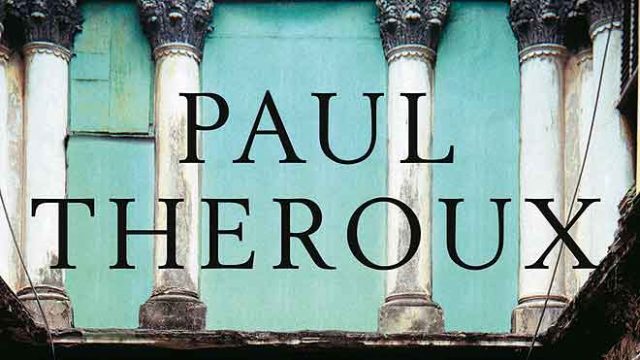I suppose it was only a matter of time before Calcutta made an appearance on Paul Theroux’s fictional map. The last time he came calling was in 2008, when he infamously failed to inaugurate the Calcutta Book Fair after it was struck down by the High Court on grounds of environmental pollution. Enough to permanently sour a man’s outlook on a city.
Jerry Delfont is the persona Theroux adopts for this novel, a US consulate-sponsored travel writer suffering from a severe case of writer’s block and a milder attack of self-pity. He mooches about in a charmless hotel in the Sudder Street area and on the very first page grumbles mightily about the way the city had started to creep on his skin, with its “exhalations of decay… like the itch that you experience when you empty an overfull vacuum cleaner’s dirty bag”. There is much more of the same interspersed at regular intervals throughout the novel, enough to please even the most dedicated Calcutta-basher.
But more of that later. Delfont’s ennui is relieved by a mysterious summons from the enigmatic and beautiful Merrill Unger, an American woman known for her low-key philanthropy with children. On her own, she would have been distraction enough for Jerry but, for some obscure reason, she also wants him to clear up a murder mystery. Staying in a cheap hotel in the city, Rajat, a friend of her son Charlie, wakes up in the middle of the night to find the dead body of a boy in his room, rolled up in a carpet. Terrified, he flees from the hotel room without informing the police.
In the course of his investigations, Delfont finds the severed hand of the dead boy, which gives the novel its title. Using his consulate connections, he takes the hand to the police and asks for forensic tests. That the improbably named Mooly Mukherjee of the Calcutta Police agrees to his request without demur stretches credulity. But Delfont’s attempts at amateur sleuthing are fitful and absent-minded. His attention is entirely occupied by Mrs Unger, who turns out to be an adept at tantric sex. In a series of encounters in Mrs Unger’s Alipore house, Delfont is administered massages by her leaving him breathless with unfulfilled desire. He follows her slavishly through the city, and even to Guwahati, where his kundalini achieves full flowering and he performs a yoni puja. Theroux dutifully ticks the other boxes as well, including a visit to Kalighat where a goat is sacrificed and the goddess-like Mrs Unger glories in the collective hysteria.
Halfway through the novel, there is a cameo appearance by who else but Mr Theroux himself, the famous travel writer passing through the city and keen to meet Delfont. Those familiar with Theroux will not be surprised, for he has done this before, but not always with happy results. Nevertheless, the introduction of Theroux into this novel does not seem out of place, and fits in quite well with the general whingeing, carping tone of the rest of the novel. The two writers spar at each other in the shadowy recesses of Fairlawn Hotel, a personal favourite of this reviewer, who therefore disagrees completely with Delfont’s account of it. But the person for whom Theroux reserves most of his bile is the sainted Mother Teresa. Merrill Unger, in her persona as a philanthropist with a difference, refers to her institution as a ‘glorified morgue’ and a ‘house of death’. This, again, is not surprising, for Theroux has thrown hissy fits against celebrity do-gooders such as Bono and Brangelina, calling them ‘mythomaniacs… who wish to convince the world of their worth’. The same word occurs here as well, and in a similar context.
In the end, one is left wondering what, if anything, pleases Theroux. Maybe some of Sir Vidia’s famous bile did rub off on his erstwhile shadow. The denouement to the crime is predictable, the epilogue clichéd. There are fleeting moments to savour, when he displays his trademark razor-sharp instincts for the sights and sounds of an unfamiliar place. Unfortunately, such instances are not enough to raise the novel to his usual high standards.




